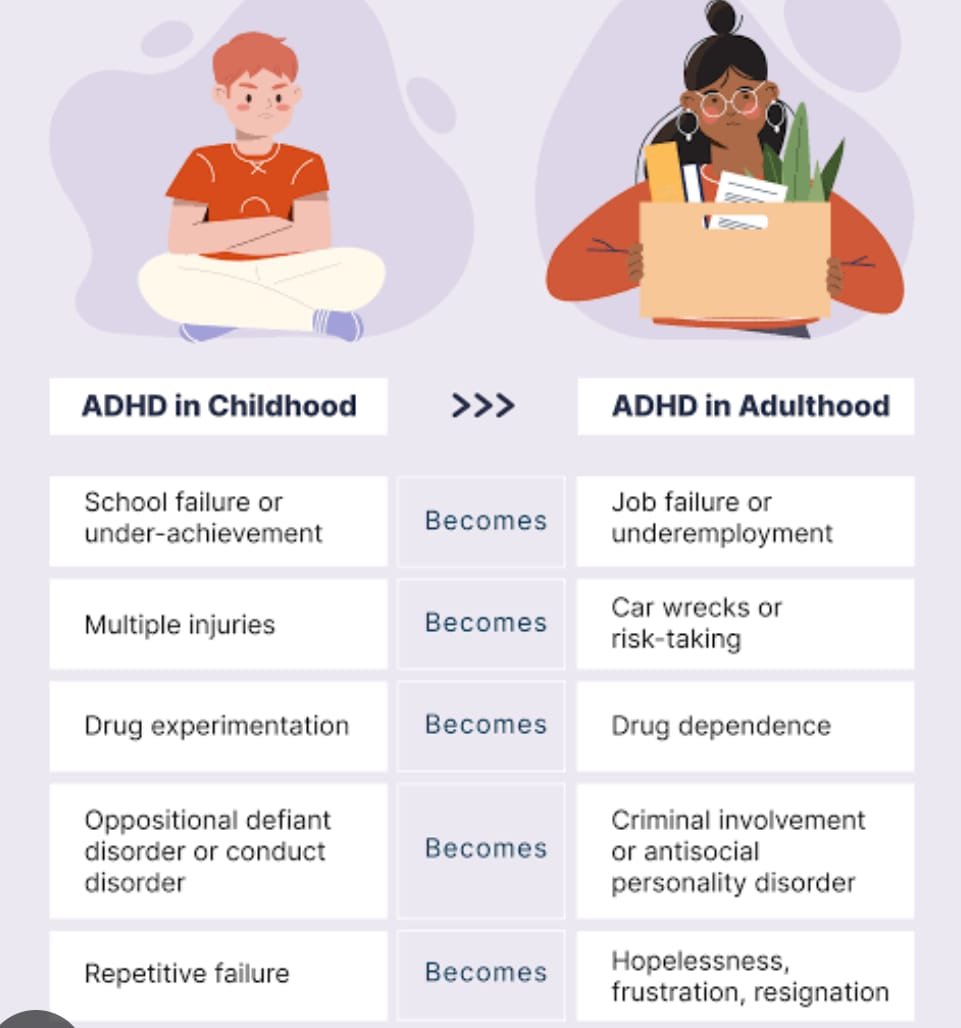ADHD SEVERITY PROBLEM INATTENTION & HYPERACTIVITY IMPULSIVITY
THE ADHD
ADHD SEVERITY PROBLEM INATTENTION & HYPERACTIVITY IMPULSIVITY
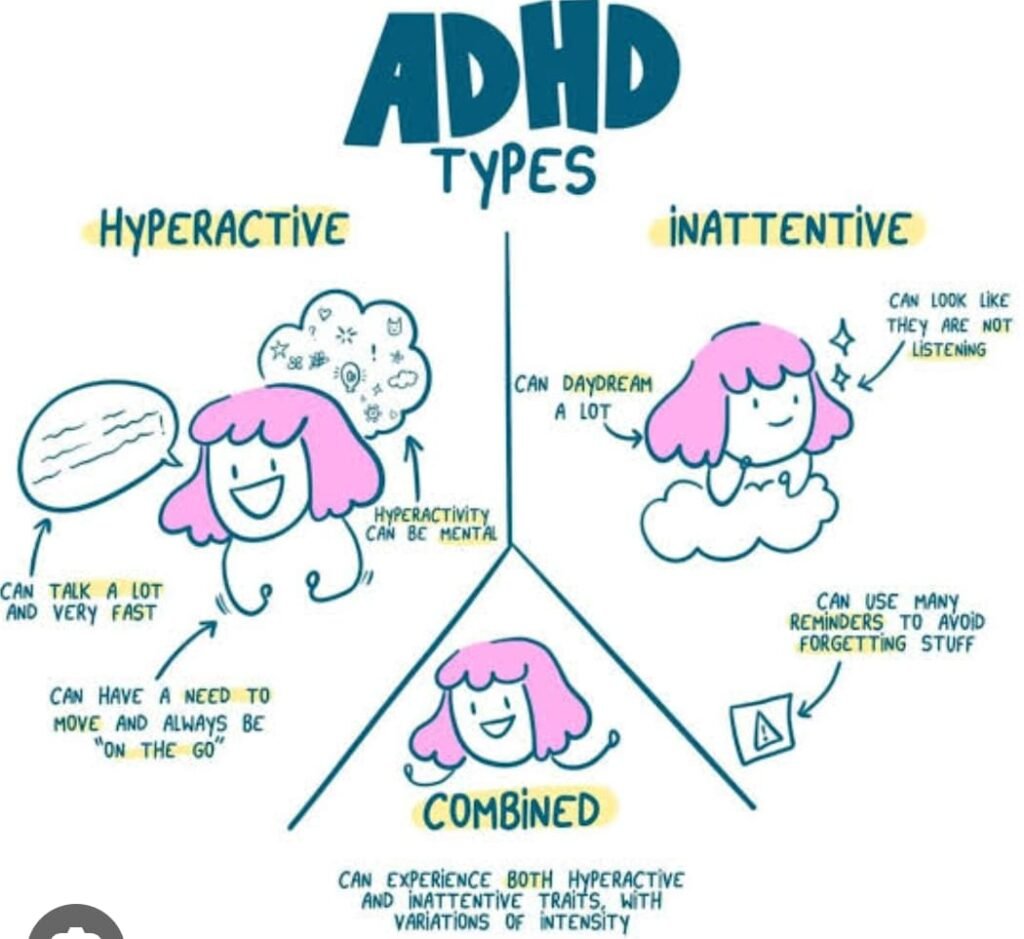
ADHD stands for Attention Deficit Hyperactivity Disorder. It’s a neurodevelopmental disorder that affects both children and adults, impacting a person’s ability to focus, control impulses, and regulate their energy levels. Symptoms include difficulty sustaining attention, hyperactivity, and impulsive behavior. Treatment often involves a combination of behavioral therapy, education, and sometimes medication.
CAUSE
ADHD stands for Attention Deficit Hyperactivity Disorder. It’s a neurodevelopmental disorder that affects both children and adults, impacting a person’s ability to focus, control impulses, and regulate their energy levels. Symptoms include difficulty sustaining attention, hyperactivity, and impulsive behavior. Treatment often involves a combination of behavioral therapy, education, and sometimes medication.
SYMPTOMS
ADHD symptoms can be categorized into two main types: inattention and hyperactivity-impulsivity.
Inattention symptoms may include:
- Difficulty sustaining attention in tasks or play activities.
- Making careless mistakes in schoolwork or other activities.
- Forgetfulness in daily activities.
- Difficulty organizing tasks and activities.
- Avoidance or reluctance to engage in tasks that require sustained mental effort.
Hyperactivity-impulsivity symptoms may include:
- Fidgeting or tapping hands and feet.
- Inability to stay seated in situations where it is expected.
- Running or climbing in inappropriate situations.
- Talking excessively.
- Difficulty waiting for one’s turn in conversations or activities.
ADHD SEVERITY PROBLEM INATTENTION & HYPERACTIVITY IMPULSIVITY
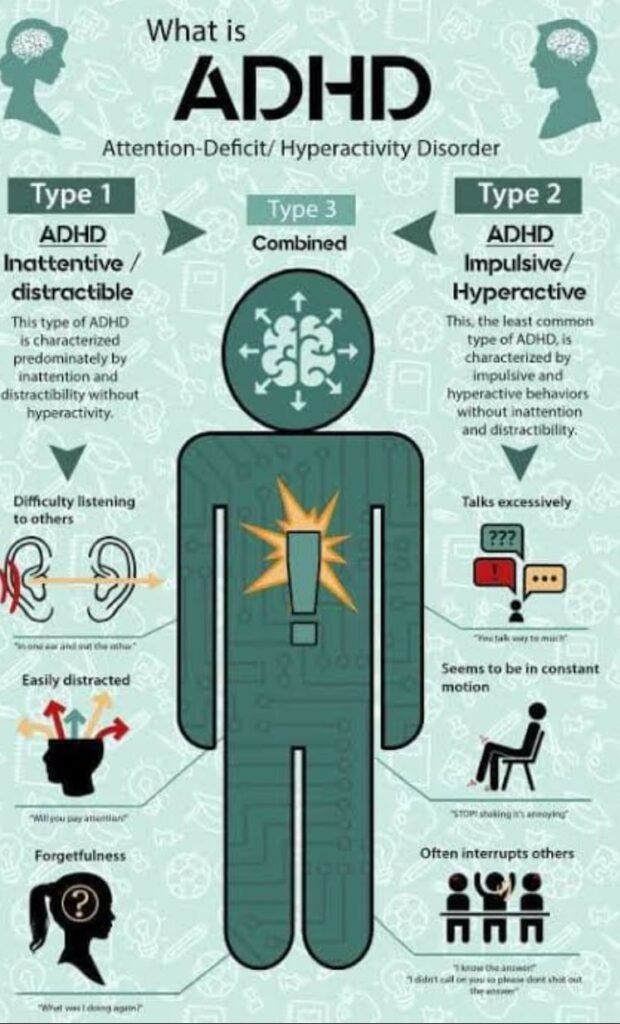
Not everyone with ADHD will exhibit all these symptoms, and the severity can vary. A diagnosis is typically made based on a thorough evaluation by a healthcare professional.
PRECAUTIONS
Managing ADHD involves a combination of strategies and precautions. Here are some general precautions and approaches:
- Professional Evaluation: If you suspect ADHD, seek a professional evaluation by a healthcare provider or mental health professional to receive an accurate diagnosis.
- Treatment Plan: Work with healthcare professionals to develop an individualized treatment plan. This may include behavioral therapy, psychoeducation, and, in some cases, medication.
- Consistent Routine: Establish and maintain a consistent daily routine. Predictability can help individuals with ADHD manage their time more effectively.
- Organizational Strategies: Use organizational tools such as planners, calendars, and reminders to help manage tasks and deadlines.
- Healthy Lifestyle: Encourage a balanced and healthy lifestyle with regular exercise, sufficient sleep, and a nutritious diet. These factors can positively impact overall well-being.
- Supportive Environment: Create a supportive and structured environment at home, school, or work. Clear expectations and consistent rules can be beneficial.
- Communication: Open communication with teachers, employers, and others involved in the individual’s life can help provide necessary support and understanding.
- Break Tasks into Smaller Steps: Break down tasks into smaller, more manageable steps to make them less overwhelming and more achievable.
- Limit Distractions: Minimize distractions in the environment, especially during tasks that require focus. This may involve creating a quiet workspace.
- Positive Reinforcement: Use positive reinforcement to encourage desired behaviors. Reward systems can be effective in promoting positive habits.
It’s important to note that the specific precautions and strategies may vary from person to person, and it’s advisable to consult with healthcare professionals for personalized guidance.
TREATMENT
Managing ADHD involves a combination of strategies and precautions. Here are some general precautions and approaches:
- Professional Evaluation: If you suspect , seek a professional evaluation by a healthcare provider or mental health professional to receive an accurate diagnosis.
- Treatment Plan: Work with healthcare professionals to develop an individualized treatment plan. This may include behavioral therapy, psychoeducation, and, in some cases, medication.
- Consistent Routine: Establish and maintain a consistent daily routine. Predictability can help individuals with manage their time more effectively.
- Organizational Strategies: Use organizational tools such as planners, calendars, and reminders to help manage tasks and deadlines.
- Healthy Lifestyle: Encourage a balanced and healthy lifestyle with regular exercise, sufficient sleep, and a nutritious diet. These factors can positively impact overall well-being.
- Supportive Environment: Create a supportive and structured environment at home, school, or work. Clear expectations and consistent rules can be beneficial.
- Communication: Open communication with teachers, employers, and others involved in the individual’s life can help provide necessary support and understanding.
- Break Tasks into Smaller Steps: Break down tasks into smaller, more manageable steps to make them less overwhelming and more achievable.
- Limit Distractions: Minimize distractions in the environment, especially during tasks that require focus. This may involve creating a quiet workspace.
- Positive Reinforcement: Use positive reinforcement to encourage desired behaviors. Reward systems can be effective in promoting positive habits.
It’s important to note that the specific precautions and strategies may vary from person to person, and it’s advisable to consult with healthcare professionals for personalized guidance.
ADHD SEVERITY PROBLEM INATTENTION & HYPERACTIVITY IMPULSIVITY
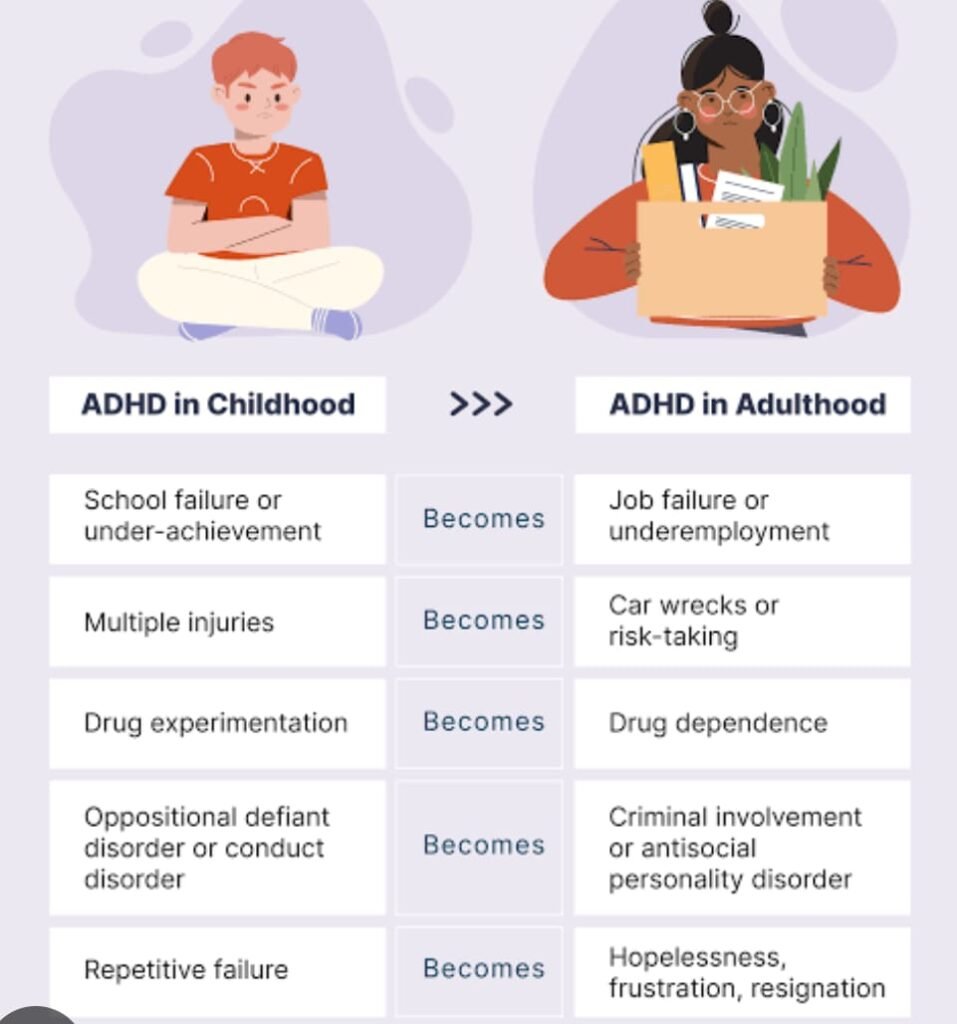
MEDICATIONS
Medication is a common component of treatment and is often prescribed based on the severity of symptoms and individual needs. Two main types of medications are commonly used:
- Stimulant Medications: Examples include methylphenidate (e.g., Ritalin) and amphetamines (e.g., Adderall). These medications can increase the levels of certain neurotransmitters in the brain, improving focus and reducing impulsivity. They are often considered safe and effective but may have side effects like insomnia or appetite changes.
- Non-Stimulant Medications: Atomoxetine (Strattera) is a non-stimulant medication commonly prescribed .It works by increasing norepinephrine levels in the brain. Non-stimulant medications are often preferred for individuals who don’t respond well to or cannot tolerate stimulants.
It’s important to note that medication decisions should be made in consultation with a healthcare professional. Factors such as age, overall health, and individual preferences are considered when determining the most suitable medication.
Regular monitoring is crucial to assess the effectiveness of the medication and to manage any potential side effects. Adjustments to the type or dosage of medication may be made over time.
Medication is often most effective when combined with other therapeutic approaches, such as behavioral therapy, psychoeducation, and environmental modifications. The goal is to create a comprehensive treatment plan that addresses the unique needs of the individual .
ADHD SEVERITY PROBLEM INATTENTION & HYPERACTIVITY IMPULSIVITY
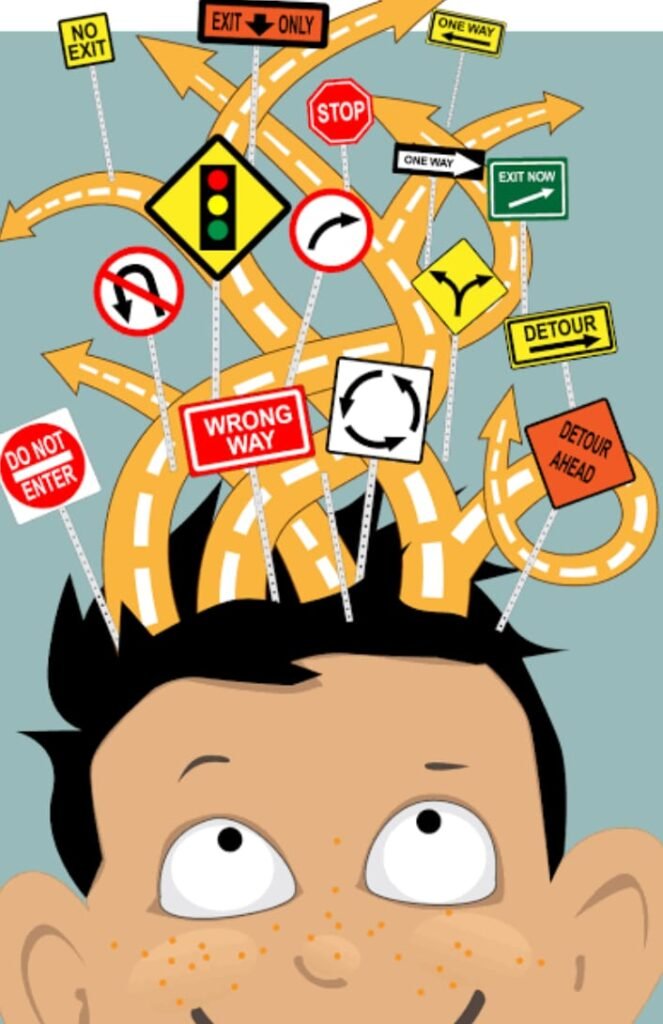

I am a content writer I have experience been writing news and blog articles for 5 years.
